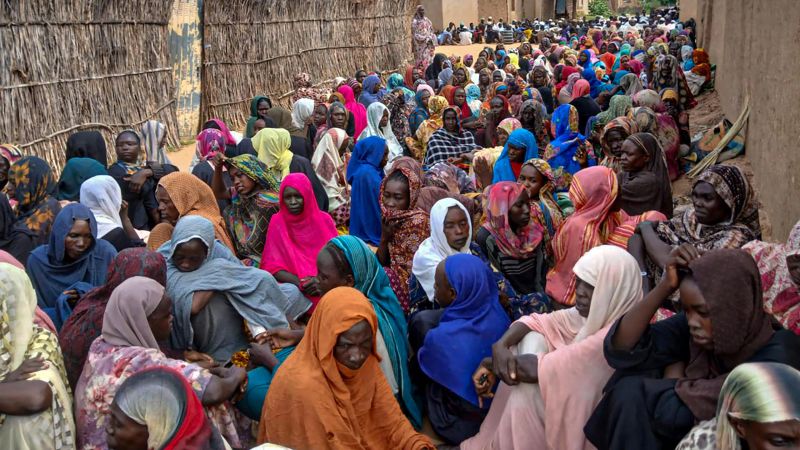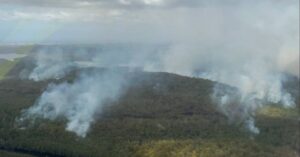
Sudan’s paramilitary Rapid Support Forces (RSF) announced on Sunday that they have captured the army headquarters in El Fasher, the last stronghold of the Sudanese army in the Darfur region. This development marks a significant shift in the ongoing conflict, raising concerns about a potential split in the war-torn nation.
Videos shared by the RSF depicted soldiers celebrating in front of signs for the army’s Sixth Infantry base. Although Reuters verified the location, the date of the footage remains unconfirmed. The Sudanese army has yet to release a statement regarding its current position in El Fasher.
The capture of El Fasher could expedite the RSF’s control over Darfur, a region they have claimed as the base for a parallel government established earlier this year. This victory follows the RSF’s recent capture of Bara in North Kordofan, a strategic area that serves as a buffer between Darfur and the army-controlled eastern part of Sudan.
RSF’s Siege and Humanitarian Impact
The RSF had besieged El Fasher, the capital of North Darfur state, for 18 months. During this period, the paramilitary group targeted civilians with drone and artillery strikes, causing severe hardship for the 250,000 residents who have endured starvation and violence.
Activists have expressed concerns that the RSF’s takeover could lead to ethnic revenge attacks, reminiscent of the violence following the capture of the Zamzam camp for displaced people. Communication with El Fasher residents is challenging due to a prolonged telecom blackout, with many relying on Starlink terminals for internet access.
Last week, the RSF claimed to facilitate the evacuation of civilians and surrendered fighters from El Fasher. However, those who managed to leave reported incidents of robbery, kidnapping, sexual assault, and killings by RSF soldiers along the escape routes.
A U.N.-mandated mission reported last month that the RSF committed multiple crimes against humanity during the siege of El Fasher.
Ongoing Conflict and International Response
The war between the Sudanese army and the RSF erupted in April 2023, following a fallout over plans to integrate their forces as part of a transition towards democracy. The conflict has displaced millions, plunged half of Sudan into hunger, and exacerbated the spread of disease across the country.
Over the weekend, the United States hosted officials from the United Arab Emirates, Egypt, and Saudi Arabia to discuss a potential peace plan. Sudan’s foreign ministry confirmed that officials were in Washington for bilateral talks. However, the army-led Sovereign Council denied any reports of indirect negotiations between the conflicting forces.
Implications and Future Prospects
The RSF’s capture of El Fasher represents a pivotal moment in Sudan’s ongoing conflict, potentially altering the balance of power in the region. As the RSF consolidates its control over Darfur, the risk of a deeper national division looms large.
International efforts to mediate peace and stabilize the region are ongoing, but the path forward remains fraught with challenges. The humanitarian crisis, fueled by displacement and hunger, demands urgent attention from global actors.
As the situation continues to evolve, the world watches closely, hoping for a resolution that can bring peace and stability to a nation long plagued by conflict.






